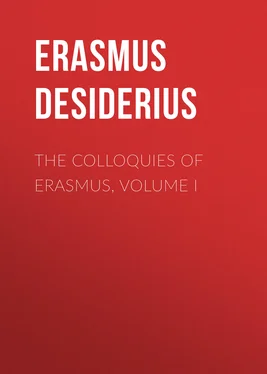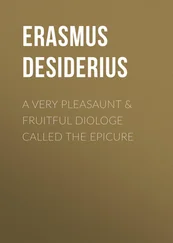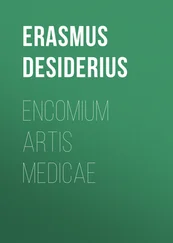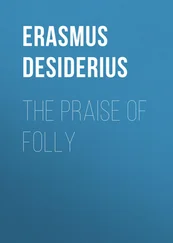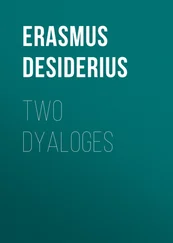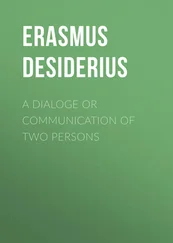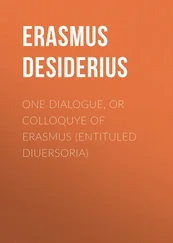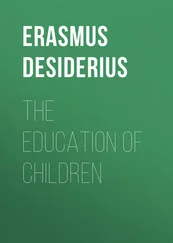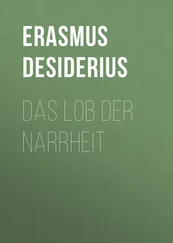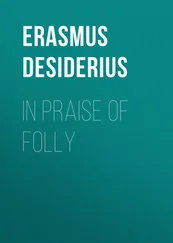Desiderius Erasmus - The Colloquies of Erasmus, Volume I
Здесь есть возможность читать онлайн «Desiderius Erasmus - The Colloquies of Erasmus, Volume I» — ознакомительный отрывок электронной книги совершенно бесплатно, а после прочтения отрывка купить полную версию. В некоторых случаях можно слушать аудио, скачать через торрент в формате fb2 и присутствует краткое содержание. Жанр: foreign_prose, foreign_antique, на английском языке. Описание произведения, (предисловие) а так же отзывы посетителей доступны на портале библиотеки ЛибКат.
- Название:The Colloquies of Erasmus, Volume I
- Автор:
- Жанр:
- Год:неизвестен
- ISBN:нет данных
- Рейтинг книги:5 / 5. Голосов: 1
-
Избранное:Добавить в избранное
- Отзывы:
-
Ваша оценка:
- 100
- 1
- 2
- 3
- 4
- 5
The Colloquies of Erasmus, Volume I: краткое содержание, описание и аннотация
Предлагаем к чтению аннотацию, описание, краткое содержание или предисловие (зависит от того, что написал сам автор книги «The Colloquies of Erasmus, Volume I»). Если вы не нашли необходимую информацию о книге — напишите в комментариях, мы постараемся отыскать её.
The Colloquies of Erasmus, Volume I — читать онлайн ознакомительный отрывок
Ниже представлен текст книги, разбитый по страницам. Система сохранения места последней прочитанной страницы, позволяет с удобством читать онлайн бесплатно книгу «The Colloquies of Erasmus, Volume I», без необходимости каждый раз заново искать на чём Вы остановились. Поставьте закладку, и сможете в любой момент перейти на страницу, на которой закончили чтение.
Интервал:
Закладка:
These matters are more your concern than mine. For this man's manners invite much discredit upon your order, while the mass of the people judge of you all by this one sample. Unjustly so, I admit; but so the world wags. And the harshness of your brother estranges no small number from the study of divinity. I know that the man is utterly disliked by you, with the exception of two or three boon companions, and one old hand, who abuses the man's folly in the interests of his own lusts. But all would definitely understand that you disapprove of him, if, since he cannot be restrained, you were to expel him from your table. I well know such a step will be very difficult to take. For men of his stamp are reluctantly torn away from the smell of stated, sumptuous, and free repasts. Nevertheless this concerns the honour of your Order, towards which I have good reason to be well-disposed. Farewell.
Supposed to have been written in 1531.
ALL THEFAMILIAR COLLOQUIES OF DESIDERIUS ERASMUS , OF ROTERDAM,CONCERNING MEN, MANNERS, AND THINGS, TRANSLATED INTO ENGLISH
Unlike in Method, with conceal'd Design,
Did crafty Horace his low Numbers join;
And, with a sly insinuating Grace,
Laugh'd at his Friend, and look'd him in the Face:
Would raise a Blush, when secret Vice he found;
And tickled, while he gently prob'd the Wound:
With seeming Innocence the Crowd beguil'd;
But made the desperate Passes, when he smil'd.
LONDON
1725.
THE PREFACE
There are two Things I would take some Notice of: The first relates to my Author, and the second to myself, or the Reasons why I have attempted this Translation of him. And in speaking of the first, I presume I shall save myself much of what might be said as to the second. Tho' Erasmus is so well known, especially to those versed in the Latin Tongue, that there seems to be but little Occasion to say any Thing in his Commendation; yet since I have taken upon me to make him an English-man, give me Leave to say, that in my Opinion, he as well deserves this Naturalization, as any modern Foreigner whose Works are in Latin, as well for the Usefulness of the Matter of his Colloquies, as the Pleasantness of Style, and Elegancy of the Latin.
They are under an egregious Mistake, who think there is nothing to be found in them, but Things that savour of Puerility, written indeed ingeniously, and in elegant Latin. For this Book contains, besides those, Things of a far greater Concern; and indeed, there is scarce any Thing wanting in them, fit to be taught to a Christian _Youth design'd for liberal Studies.
The Principles of Faith are not only plainly and clearly laid down, but establish'd upon their own firm and genuine Basis. The Rules of Piety, Justice, Charity, Purity, Meekness, Brotherly Concord, the Subjection due to Superiors, are so treated of, that, in a Word, scarce any Thing is omitted that belongs to a Man, a Subject, or a Christian.
Neither are those Things omitted, which respect a Medium of Life, by which every one may chuse out safely what Ratio of Life he has most Mind to, and by which he may be taught, not only Civility and Courtesy, but also may know how to behave himself in the World, so as to gain himself the good Will of many, and, a good Name among all, and may be able to discern the Follies and Childishnesses of Fools, and the Frauds and Villanies of Knaves, so as to guard against 'em all.
And neither are there wanting Sketches, and that ample ones too, of Poetical Story, or Pagan Theology, universal History, sacred and profane, Poetry, Criticism, Logick, Natural and Moral Philosophy, Oeconomics and Politics; to which are added, a good Number of Proverbs and Apothegms used by the most celebrated of the Antients.
But there is one Thing in an especial Manner, that should recommend this Book to all_ Protestants _in general, and cause them to recommend it to be read by their Children, that there is no Book fitter for them to read, which does in so delightful and instructing a Manner utterly overthrow almost all the Popish Opinions and Superstitions, and erect in their Stead, a Superstructure of Opinions that are purely Protestant.
And notwithstanding whatsoever_ Erasmus hath said in his Apology concerning the Utility of his Colloquies, that he could say with Modesty, according to his wonted Dexterity, to temper, and alleviate the Bitterness of the Wormwood that he gave the Papists to drink in the Colloquies, it is past a Question, that he lays down a great many Things agreeable to the Protestant Hypothesis, so that (if you except Transubstantiation) he reprehends, explodes and derides almost all the Popish _Opinions, Superstitions and Customs.
Therefore if this golden Book be read with Attention, I doubt not but it will plainly appear, that the Scripture was in all Things preferr'd by the Author before them all; and that he accounted that alone truly infallible, and of irrefragable Authority, and did not account the Councils, Popes or Bishops so.
And as to the praying to Saints, it was his Opinion, the christian World would be well enough without it, and that he abhor'd that common Custom of asking unworthy Things of them, and flying to them for Refuge more than to the Father and Christ.
That he look'd upon all external Things of very small Account, of whatsoever Species they were: Either the Choice of Meats, Processions, Stations, and innumerable other Ordinances and Ceremonies, and that they were in themselves unprofitable, although he, for the sake of Peace and Order, did conform himself to all harmless Things that publick Authority had appointed. Not judging those Persons, who out of a Scrupulousness of Conscience thought otherwise, but wishing that those in Authority would use their Power with more Mildness.
And that he esteem'd, as Trifles and Frauds, the Community of good Works, of all Men whatsoever, or in any Society whatsoever; that he abhor'd the Sale of Pardons for Sins, and derided the Treasury of Indulgences, from whence it is a plain Inference, that he believ'd nothing of Purgatory.
And that he more than doubted, whether auricular Confession was instituted by Christ or the Apostles; and he plainly condemns Absolution, and laugh'd at the giving it in an unknown Tongue. From whence we may fairly infer, that he was against having the Liturgy (which ought to be read to Edification) in an unknown Tongue. But he either thought it not safe, or not convenient, or at least not absolutely necessary to speak his Mind plainly as to that Matter.
Likewise, he particularly laugh'd at all the Species of popular and monastical Piety; such as Prayers repeated over and over, without the Mind, but recited by a certain Number with their_ Rosaries, and Ave-Maria's, by which, God being neglected, they expected to obtain all Things, though none were particularly nam'd: Their tricenary, and anniversary Masses, nay, and all those for the Dead: The dying and being buried in a Franciscan's and Dominican's _Garment or Cowl, and all the Trumpery belonging to it; and did, in a manner condemn all Sorts of Monastical Life and Order, as practis'd among the Papists.
He shews it likewise to have been his Opinion, as to the Reliques of_ Christ, _and he and she Saints, that he judg'd the Worship of them a vain and foolish Thing, and believ'd no Virtue to be in any of them, nay, that the most, if not all of them, were false and counterfeit.
Читать дальшеИнтервал:
Закладка:
Похожие книги на «The Colloquies of Erasmus, Volume I»
Представляем Вашему вниманию похожие книги на «The Colloquies of Erasmus, Volume I» списком для выбора. Мы отобрали схожую по названию и смыслу литературу в надежде предоставить читателям больше вариантов отыскать новые, интересные, ещё непрочитанные произведения.
Обсуждение, отзывы о книге «The Colloquies of Erasmus, Volume I» и просто собственные мнения читателей. Оставьте ваши комментарии, напишите, что Вы думаете о произведении, его смысле или главных героях. Укажите что конкретно понравилось, а что нет, и почему Вы так считаете.
